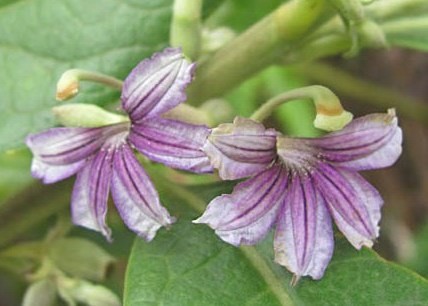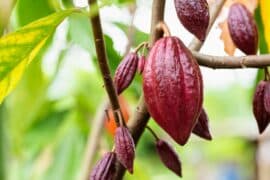Purple naupaka
(Scaevola mollis)

Description
Scaevola is genus of flowering plants in the Goodenia family, Goodeniaceae. It consists of more than 130 species, with the center of diversity being Australia and Polynesia. There are around 80 species in Australia, occurring throughout the continent, in a variety of habitats. Diversity is highest in the South West, where around 40 species are endemic. Common names for Scaevola species include scaevolas, fan-flowers, half-flowers, and naupaka, the plants' Hawaiian name. The flowers are shaped as if they have been cut in half. Consequently, the generic name means "left-handed" in Latin. Many Hawaiian legends have been told to explain the formation of the shape of the flowers. In one version a woman tears the flower in half after a quarrel with her lover. The gods, angered, turn all naupaka flowers into half flowers and the two lovers remain separated while the man is destined to search in vain for another whole flower. Scaevola taccada in Rangareddy district of Andhra Pradesh, India. Scaevola is the only Goodeniaceae genus that is widespread outside of Australia. In at least six separate dispersals, about 40 species have spread throughout the Pacific Basin, with a few reaching the tropical coasts of the Atlantic and Indian Oceans. The Hawaiian Islands are home to ten Scaevola species, nine of which are endemic. Eight of the indigenous species are the result of a single colonization event. Scaevola glabra and Scaevola taccada arrived separately to produce a total of three colonizations of Hawaii by Scaevola. Some of the endemic species are of hybrid origin. Beach naupaka (Scaevola taccada synonym S. sericea) occurs throughout the Pacific and Indian Oceans and is considered an invasive species in Florida, USA, and in some islands of the Caribbean including the Cayman Islands and the Bahamas. Beachberry or Inkberry (Scaevola plumieri) is widespread along the Atlantic coast of the tropical Americas and Africa; however, it is becoming rarer in areas where S. taccada is displacing native coastal plants. Most Australian Scaevola have dry fruits and sprawling, herbaceous to shrubby habits. By contrast, nearly all species outside Australia have shrub habits with fleshy fruit making dispersal by frugivores easy. The plant pathogenic sac fungus Mycosphaerella scaevolae was discovered on a Scaevola fan-flower. In Europe, Scaevola aemula is a fairly common container- and bedding plant, usually grown as an annual.
Taxonomic tree:







